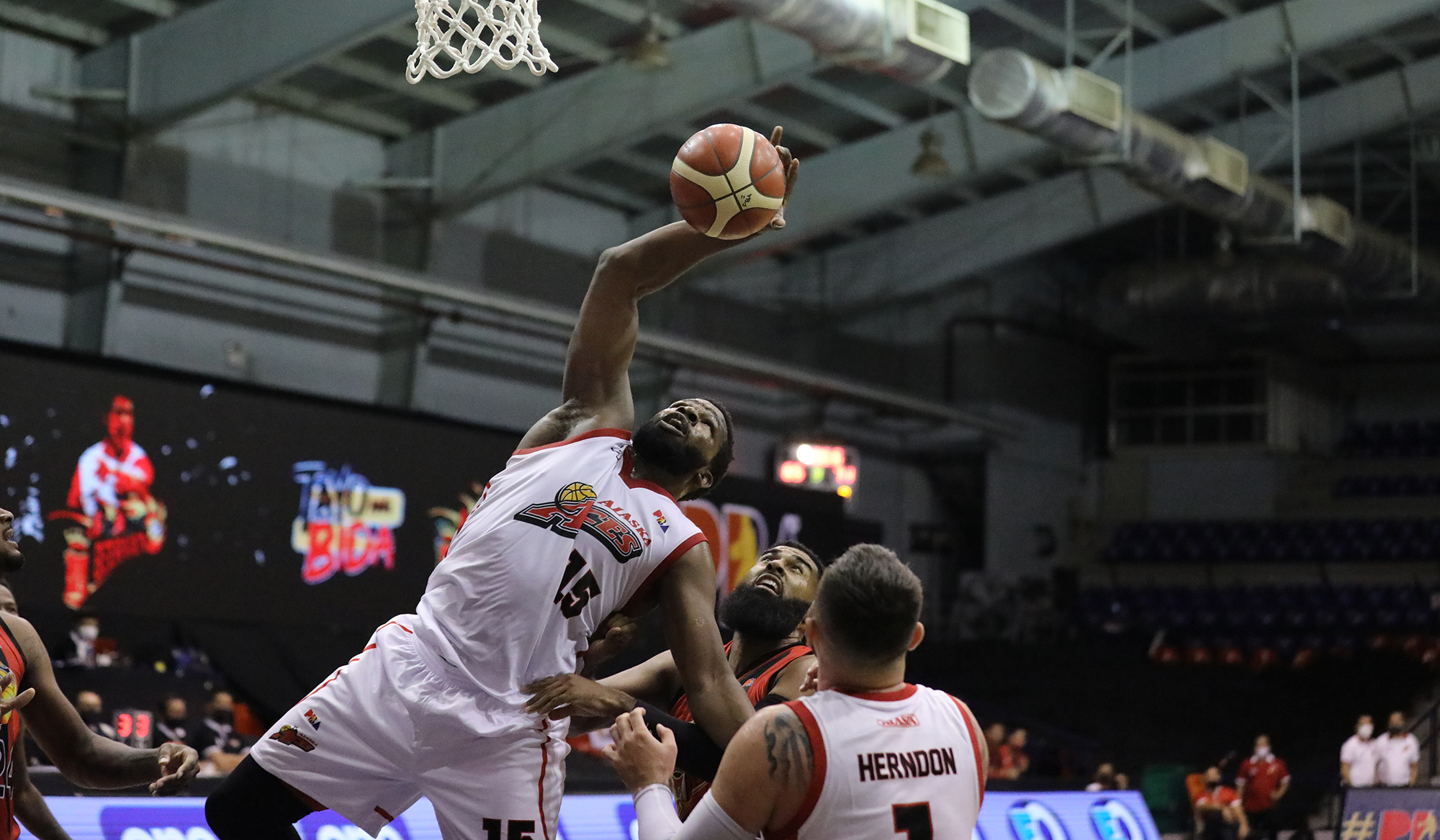PBA teams primed for possible February reopening

Alaska Olu Ashaolu. PBA IMAGES
Alaska’s Ola Ashaolu is ready after gaining some time to allow an injured calf to heal. Justin Brownlee is ready, period.
It’s just a matter of getting the PBA Governors’ Cup back on track with, league coaches hope, the imports still around.
“Justin is still in town and raring to go. We all are,” said coach Tim Cone, the decorated mentor of the defending champion Barangay Ginebra.
Alaska coach Jeffrey Cariaso told the Inquirer that the same goes for Ashaolu, who used the league’s pause because of the spike of COVID-19 infections in Metro Manila to rest his hurting calf.
“He’s been able to rest and rehab. I guess that’s one positive thing that came out [of] the delay,” Cariaso said. “He’s at full strength now, and will be ready to go once we resume.”
But whether or not the teams will still have their imports upon the resumption of the league is a question that relies heavily on timing; PBA commissioner Willie Marcial has said February will be a crucial month for the season-ending tournament.
If the league remains frozen by the health situation deep into next month, the Governors’ Cup faces cancellation at worst or playing on minus its imports to help reduce costs.
TNT coach Chot Reyes agreed with the time frame, saying a February resumption would mean keeping the foreign players around.
“If the league is able to resume in Feb., then it’s effectively a one-month extension of the tournament,” he said. “I think PBA teams can weather that.”
Integral to campaign
The outlook has been positive so far, with the Games and Amusements Board saying the PBA can run its tournament in a strict closed circuit environment. All people involved in the league will only be allowed to travel from their homes to playing or practice venues.
The sooner the PBA can put that system in place, the sooner it can begin. And the sooner it begins, there would be no need to send home the imports, who have been integral to the teams’ campaigns.
“Obviously, it would be tough to start again without the imports since we were in the middle of an import conference,” said Cone.
“Not sure how fair or doable that is, but it’s true, the board and the commissioner have some tough decisions to make,” he added. “As for us, we’re preparing like we will resume at any time.”
Ashaolu is averaging 19.8 points and 11.6 rebounds for the three-win, two-loss Aces. Brownlee, meanwhile, is plowing through with 27 and 10 for the 3-1 Gin Kings, who are coping with several injuries.
Imports are usually paid between $18,000 to $20,000 a month, a huge sum padded by the fact that teams also shoulder their living expenses like board and lodging, food, utilities and transportation. And with the league in suspension, the price tag on imports is further magnified.
Marcial, however, had earlier said that there have been zero complaints yet by the teams.
“Honestly, I’m a bit surprised, too. But I really haven’t gotten a call from any team manager or owner complaining about the [financial requirement of keeping imports around],” he said.
